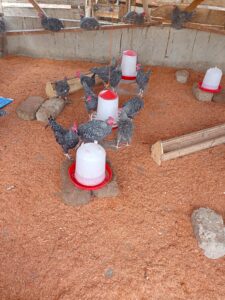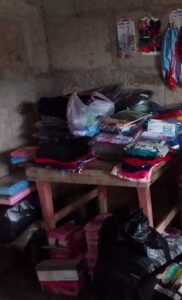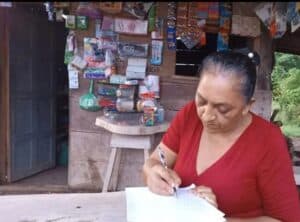Educating Nicaragua’s Farm Families
When we welcome guests to our training sessions, we always share the idea that insanity is doing the same thing and expecting different results, so if you want different results, you must change your way of doing things. Farmers, women, and young people come from all over Nicaragua to be trained in the Fred Strohbehn Training Center (CECAL). Every month we host more than 60 people and hold specific sessions to meet the needs of each group. In July, we partnered with the Ministry of Health (MINSA) to offer a women’s preventative healthcare training session, partnered with Peace Corps to introduce improved stove technology, introduced farmers to the newest varieties of quality protein maize (QPM), and taught leaders of the CAPS (Potable Water and Sanitation Committees) to better manage their community water systems and improve water quality using the CTI-8 manual chlorinator technology.

Nicaragua has the lowest yields of corn in Central America and has predominantly cultivated open-pollinated grain varieties since most communities don’t believe they can afford hybrid seed, so we’re teaching farmers techniques for raising their crop yields when growing QPM.
One farmer said, “I don’t mind traveling far since I know that I am going to learn something new to improve my corn cultivation…I want to thank Country Program Director Jorge and the Self–Help International staff that are always willing to support us with resources, training, and time. The best way I can show I am really grateful is by showing that I am implementing all the knowledge and skills learned from you all. My family and I will always follow your advice because we have seen that it works – as a result we have a better yield in our harvest and have seen an increase in our income.”
We reflected on the current situation with our farmers: they now have access to modern technologies but, since the time of their grandparents, they have not made great changes to the way they sow and cultivate the land. For this reason, we have set out to launch the “Sustainable Intensification Strategy in Maize Production,” identifying the factors that negatively influence the levels of maize production.

Our farmers are in need of knowledge and technological updates. They are producers located in the humid tropics of Rio San Juan who work hard to feed their families, but their agricultural practices lack technical advancements. Because of difficult growing seasons and a poor economy, they often experience net losses at harvest time and fail to profit at the end of the season. In addition, these farmers are not considered eligible for credit through government micro-finance institutions due to lack of collateral and insufficient credit history. We at Self-Help are committed to ensuring that small farmers know the nutritional advantages of high-quality protein maize and we urge them to sow this certified seed because it sells at a more competitive price. Learning practical ways to improve their yields and profit margins at each training session incentivizes farmers to attend every training offered by Self-Help staff.
Check back soon for further updates about the recent training sessions on building better stoves to improve household health and decrease fuel costs; women’s health screenings; and training CAPS leaders on how to analyze the ongoing costs of installing water pumps and levy community fees to ensure sustainability. All in all, the training center has been busy collectively working on new, innovative ideas, and hopes to continue this upward trajectory to help families in Nicaragua improve their quality of life.




